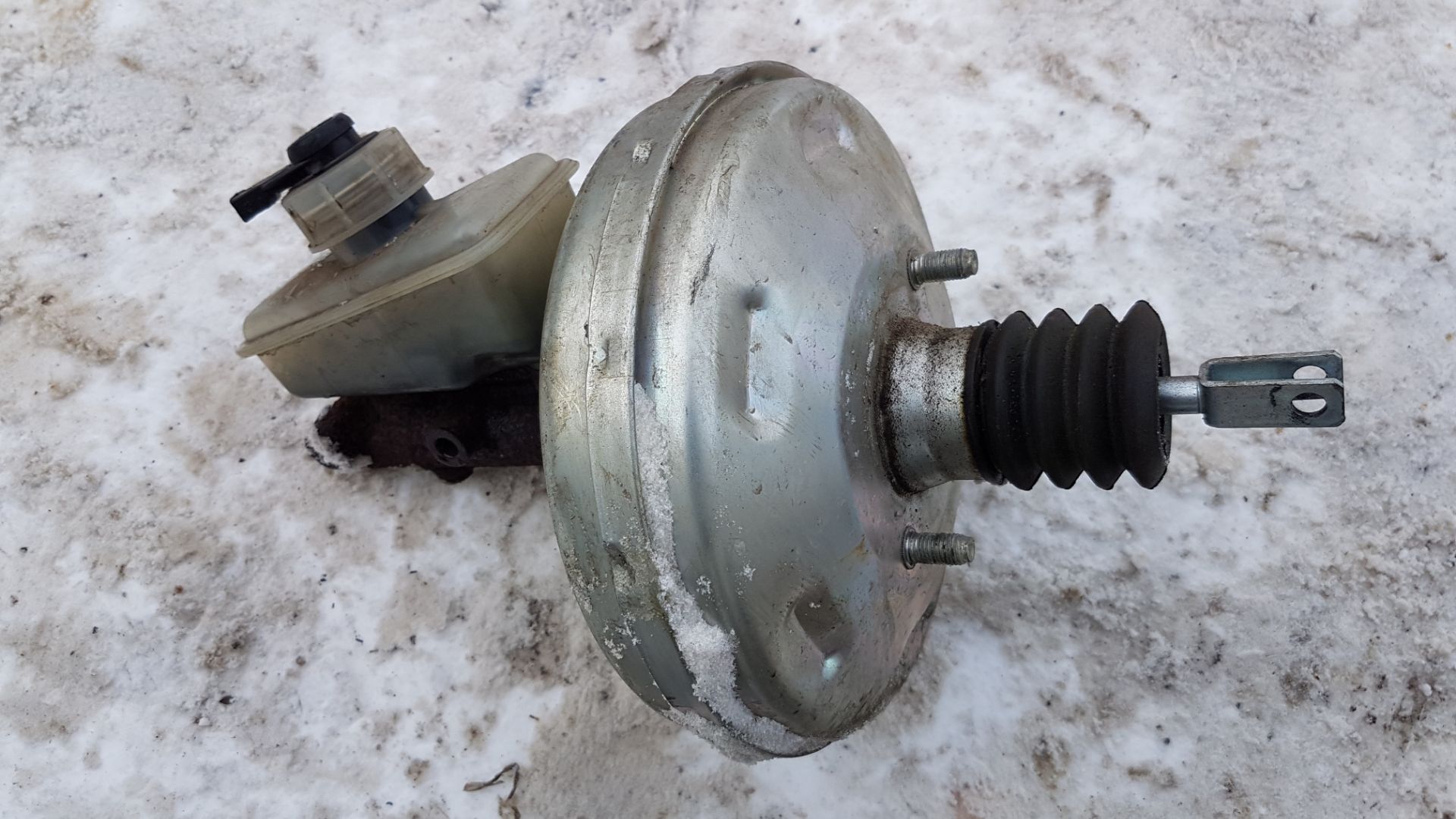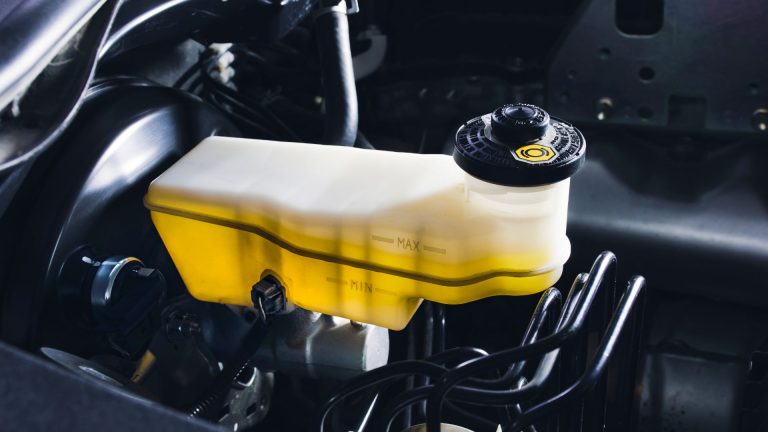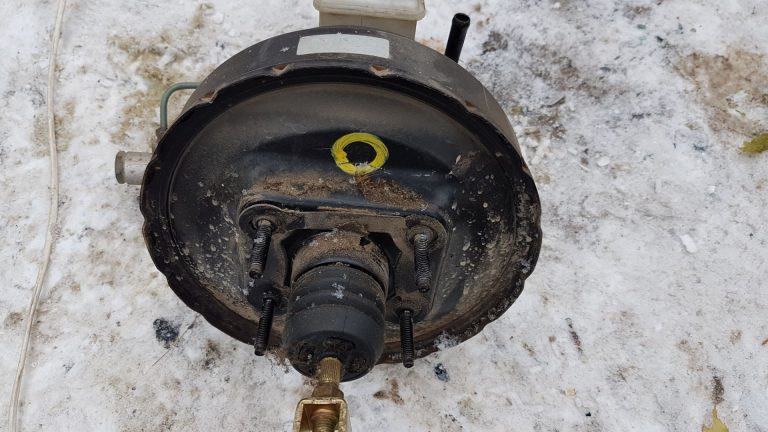Bad brake booster symptoms — causes and fixes
Recognize the signs of bad brake booster symptoms for road safety.

While you’ve probably heard of brake pads, discs, and calipers even if you aren’t much of a car expert, these are not all the parts of your braking system. It’s a complex system that works based on hydraulic pressure that starts generating as soon as you step on the brake.
So, not knowing the rest of the parts of the system and their role could lead to unfortunate accidents. That’s why it’s crucial to recognize bad brake booster symptoms on time, and timely service the brakes so you keep the pressure optimal. Don’t worry, if all of this sounds complicated, our team will break down the issue of bad brake boosters and their symptoms in this guide.
About brake boosters and their role

If you’ve ever wondered about how the pressure from the brake pedal gets transferred to the brake pads, it’s all thanks to brake boosters. The boosters use a vacuum to amplify the pressure on the gas pedal to the hydraulic pressure via the master cylinder and therefore build up the pressure in the brake fluid lines.
Without the operational booster, the pressure on the brake pedal simply wouldn’t be enough to give you proper braking performance and provide shorter braking distances. It’s a bond between the pedal and the master cylinder and uses a vacuum to amplify the pressure on the master cylinder lever.
It ultimately helps push the piston of the master cylinder with exactly the right force, so brake fluid from the cylinder flows through the brake lines with proper pressure. It eventually reaches the calipers, and that force is used to push the brake pads against the rotors.
So, you could say that without an operational brake booster, the braking system of your car simply wouldn’t work as efficiently. Thanks to the brake booster, you get the right amount of hydraulic pressure as the piston of the master cylinder gets the brake fluid to flow through the lines.
Main signs of bad brake boosters

Now that you know that a brake booster is an essential component in the vehicle’s braking system, it’s time to go over the main symptoms of brake booster problems. As we already discussed, a malfunctioning brake booster won’t be able to do its job of amplifying brake pedal pressure and properly affecting the master cylinder’s lever.
So, you might see that your brake pedal goes to the floor and feels sort of spongy with no pressure. It’s a loss of pressure similar to that caused by a leaking brake line. Without the proper pressure, there’s not enough braking force or brake pedal pressure, so this is also a dangerous consequence. Here’s a list of the main signs of bad brake boosters:
- Strange brake pedal pressure
- Longer stopping distance
- Brake fluid leaks
- Strange noises
You might also notice how the brake pedal is either higher than usual or goes down to the floor when you press it. Either way, different brake booster malfunctions can’t affect the braking performance for the better, so you can always assume that you’ll have a problem with your brakes.
The best thing to do is inspect the boosters as soon as possible to restore the braking force of your car and prevent scenarios like your brakes going to the floor while driving.
Change in the brake pedal pressure
Besides the possibility of your brake pedal getting spongy, there’s also the chance for the booster malfunction to result in a stiff brake pedal. Regardless of the case, you shouldn’t keep driving with a sudden change in brake pedal pressure.
Whether it’s difficult to press down, or it goes right to the floor, you won’t be able to control your brakes properly. It always results in a lower brake pedal pressure, so it’s no wonder if your stopping distance gets shorter. This problem is a serious safety issue, just like the brake caliper sticking and the pedal feeling soft without any pressure.
Increased stopping distance
Even if you don’t notice a change in brake pedal pressure, there’s always the possibility of a bad brake booster affecting your stopping distance. If you end up experiencing a longer stopping distance, it’s possibly due to bad brake boosters.
If that’s the case and the brake pedal doesn’t seem to be stiff or spongy, you might be dealing with a leaky brake booster hose. It’s also worth checking the brake booster clamp, since it might have gotten loose and needs some tightening for proper pressure buildup.
Brake fluid leaks
Another common symptom of a bad booster is if you spot a puddle of brake fluid you might spot around the brake pedal area. It’s also possible for brake boosters to leak power steering fluid since some booster types use this type of fluid to amplify the brake pedal pressure.
Regardless of the leak type, if you spot a puddle in the brake pedal zone and your braking distances are longer with a stiff brake at the end of the braking process, it indicates bad brake boosters.
Strange noises
Along with the pressure problems and longer braking distances, you’ll likely also experience strange noises when pressing the brake pedal. Usually, if there’s a brake booster issue, you’ll experience a hissing sound from the brake pedal area or the dashboard.
It’s caused by the air trying to escape from the booster in case of a brake booster malfunction. Vacuum leaks within the braking system are always associated with brake boosters. Air trapped in the brake lines is a problem on its own, and it’s mostly caused by some air reaching the lines while refilling brake fluid.
It shouldn’t be in brake fluid lines in the first place for the most powerful hydraulic pressure. On the other hand, brake boosters use the vacuum to amplify brake pedal pressure. That’s the reason behind a hissing noise when pressing on the brake.
Fixing a bad brake booster
The only way you can deal with a bad brake booster is by repairing it or replacing it with a new one. Still, it’s first important to make sure that the booster itself is the cause of the problem. There are a few ways you can test this yourself without taking your car to the mechanic.
First, your brake pedal shouldn’t go to the floor when the engine is shut off. So, without starting your car, you won’t be able to fully press the brake pedal if the booster is fine.
Another method is to try pressing the brake pedal a few times with the engine being shut off. Keep your foot on the brake, and start your engine. If the brake pedal doesn’t go down with slight pressure while doing this but stays firm and tight, you have a brake booster problem.
Our take
In the end, brake boosters might not be the first thing that comes to mind when discussing braking system parts, but it’s nonetheless crucial. By knowing all these bad brake booster symptoms, you can act on time and repair or replace the booster to restore the proper brake pressure and braking force.
If possible, you should come to a safe stop and prevent driving any further if you spot a brake booster problem. It’s dangerous as it always leads to longer stopping distances and that might compromise your driving safety.
What happens when the brake booster goes bad?
When the brake booster goes bad, it can’t amplify the pressure of the brake pedal and it leads to longer stopping distances and stiff or spongy brakes.
How do I know if I need a new brake booster?
You can know that you need a new brake booster if your brake pedal feels stiff or there’s a hissing sound when you press the brake pedal.
How do I know if my master cylinder or brake booster is bad?
You can know whether your master cylinder or brake booster is bad based on the position of the brake fluid leak. If you spot a leak on the back of the cylinder or the freewall on the inside of the car, it’s a master cylinder leak.
What does it sound like when your brake booster goes out?
When your brake booster goes out, you might experience a hissing sound when pressing the brake.